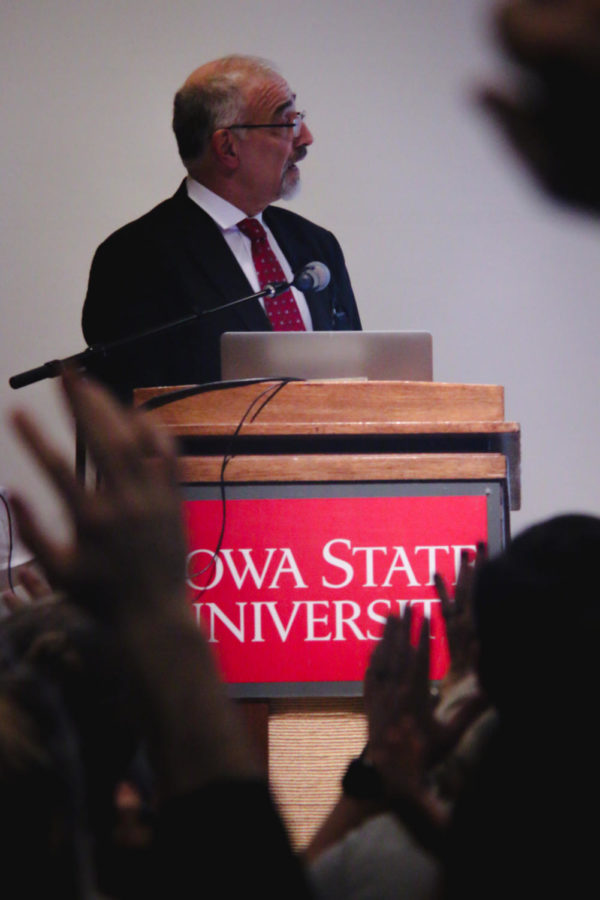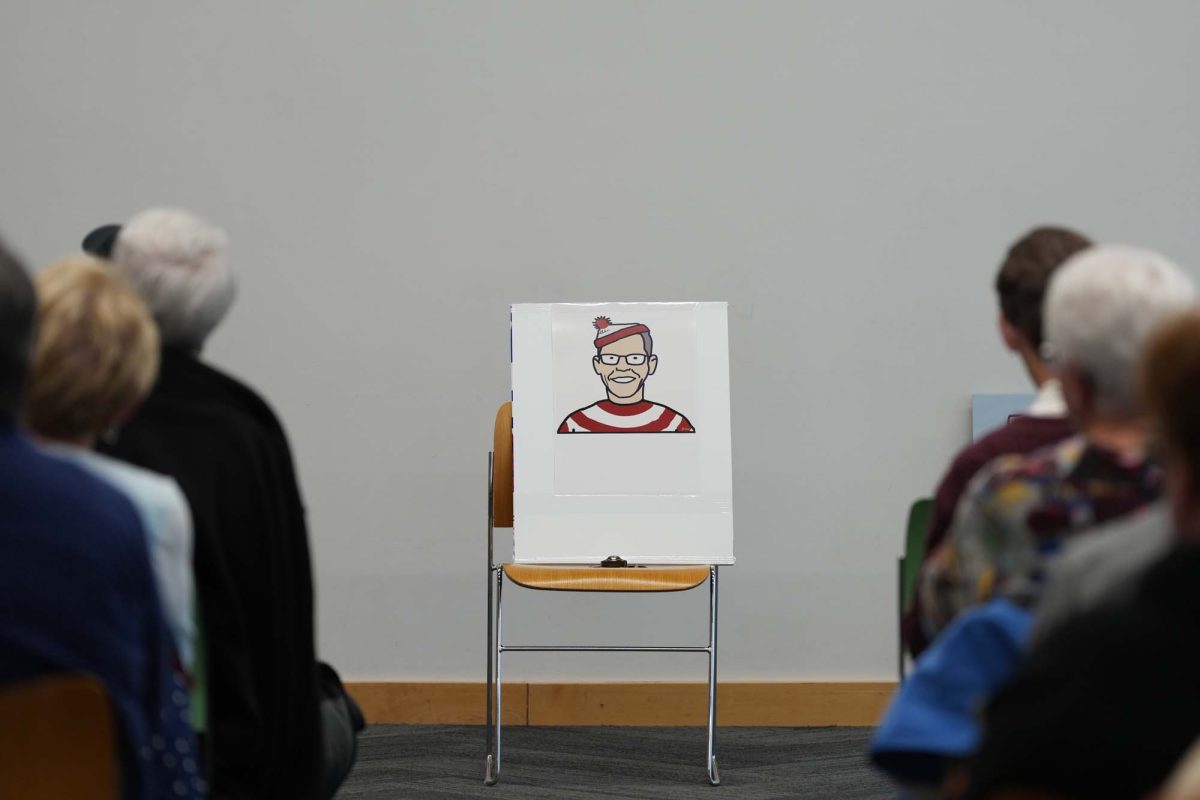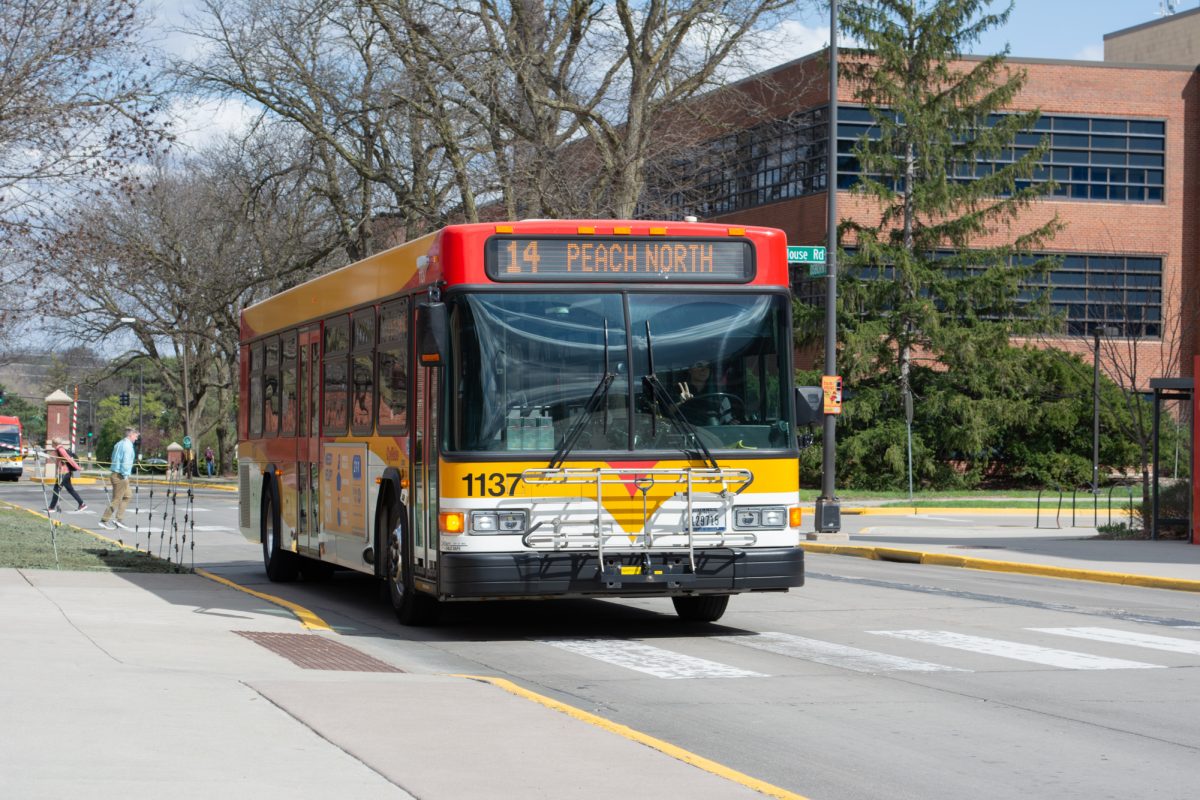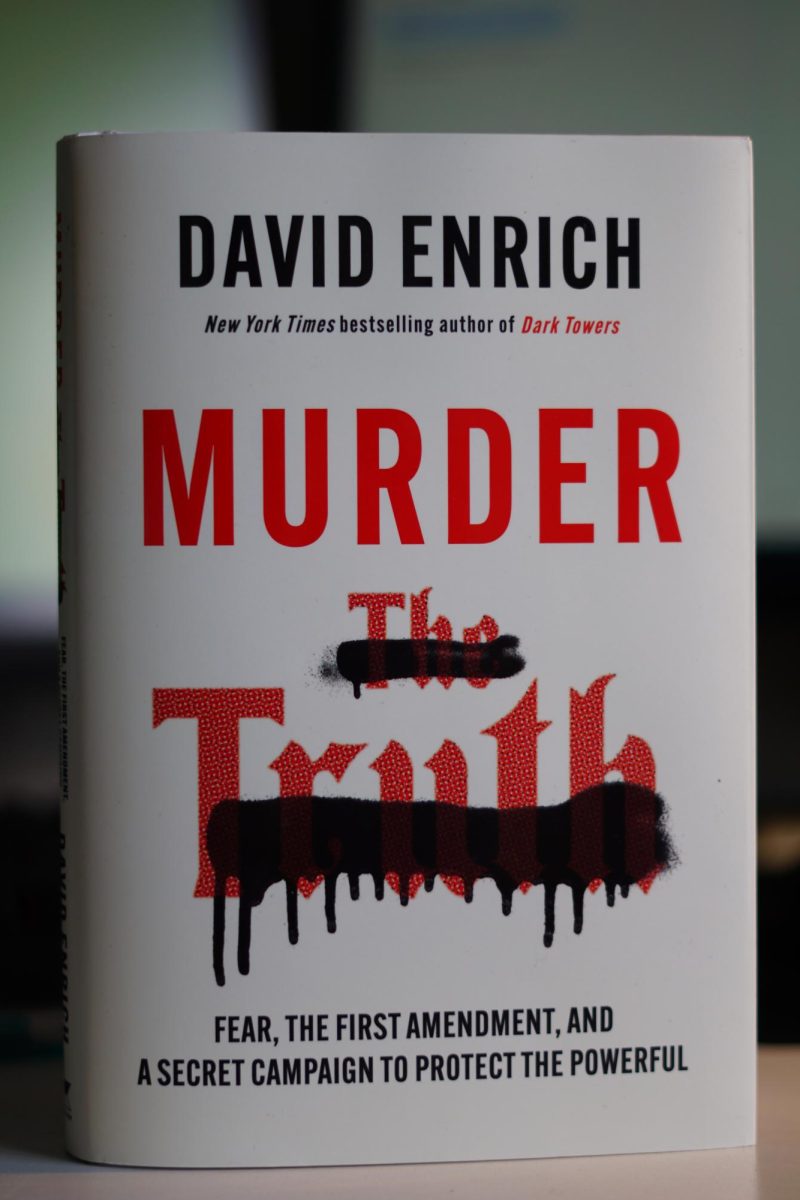Lecture: The fitter you are the fitter your brain
Alec Giljohann/Iowa State Daily
Daniel Corcos, a professor at NorthWestern University in the Feinberg School of Medicine, lectures on how exercise is important for brain health. Students voted with a raise of a hand as to which scan (left or right) looked comparatively healthier.
January 26, 2017
“Most of you know what I’m going to tell you. Those that don’t know are the ones that are absent today,” an anecdote that Daniel Corcos used as his opening for his lecture Thursday evening.
Corcos, who discussed the effects of exercise on the brain in the Sun Room of the Memorial Union, is a professor at Northwestern University in the Feinberg School of Medicine.
He further relayed his humor with a famous Oscar Wilde quote, “To get back my youth I would do anything in the world, except take exercise, get up early or be respectful,” as insight to how much people generally detest exercise. “The Greeks knew it. The Chinese knew it,” and yet still, “more than half of baby boomers are reported to not exercise.”
Corcos has spent years as a neuroscientist studying the function of exercise to the brain. His current study is about how progressive resistance training improves the motor and non-motor systems of people with Parkinson’s disease. In addition, he is studying how endurance exercises change disease severity in Parkinson’s disease.
In order to emphasize the difference between a healthy brain and an unhealthy one, Corcos showed the audience two brain images — one was a normal brain and the other was a brain with large spots as a result of degeneration. The audience was quick to choose the healthy brain, and Corcos joked that Iowa does indeed have some smart people in it.
Unfortunately, neurodegenerative diseases are not based on choice; numerous people in the United States fall victim to it.
“5.4 million people have Alzheimer’s, which is about 1 in 9 people nationwide,” Corcos said. “Also, about 1 million people have Parkinson’s and 650,000 suffer from strokes.”
Anumantha Kanthasamy, distinguished professor and chair in biomedical sciences, weighed in.
“The sad story is that it is going to increase over time,” Kanthasamy said. “Age is an important key factor for all these diseases. People live longer now so that means there are lot more cases. That’s a challenge again if you add finding some better cure.”
Neurodegenerative disease have no known cure as far as the scientific community is concerned.
“Alzheimer’s and Parkinson’s are two diseases of older adults,” Ann Smiley-Oyen, associate professor of kinesiology, said. “With baby boomers getting older, it’s going to eclipse.”
If it is cancer, we get better control, cardiac problem, we get better control, but the neurological diseases we don’t. And that goes back to investing in science. We have to invest in science so scientist can do the work, Kanthasamy said.
Kanthasamy is currently researching the neurodegenerative disease, such as Parkinson’s at a cellular level to understand the root causes.
But these causes are not easily understood.
“Jonas Salk found the polio vaccine and it wiped out this horrendous disease that was affecting our children,” Smiley-Oyen said. “It made a huge difference. We need that for Alzheimer’s, we need that for Parkinson’s. Unfortunately at the end of the lifespan, there are so more many variables. It’s so much difficult to isolate compared to Polio.”
Neuroscientists, of course, ultimately have the best understanding of the brain.
“In the ’80s, we thought that the brain was plastic in childhood, and by adolescence, we called it crystalized and it just didn’t change again,” Corcos said. “Well, that’s not true. We have known now for 20 years that even in old age, the brain is plastic. That’s why we have been encouraging people to exercise, even if you are 70, check with your doctor to make sure you are doing it safe. Exercise is good for the brain.”
The likes of Corcos encourage exercise because it helps work the cognition. Corcos believes in improving the quality of life for those suffering from neurodegenerative diseases. The best way to do that, he said, is through exercise, which is not a cure but offers therapeutic benefits living with the disease.
There are benefits to endurance exercises, such as increase in dopamine, which diseases like Parkinson’s starve the brain from. Other benefits include connectivity between the brain and an increase in the level of neurotrophic factors of the brain. On a study with lab rats, Corcos underlined that physical exercises increase adult hippocampal neurogenesis.
“The disease doesn’t just affect the patient, it affects the family members too,” he said.
Corcos mentioned that exercises between the patient and the caregiver can be beneficial to both individuals. He closed the lecture with a final message he said he hoped would echo in the minds of all, “If you love a sport, do a sport.”







